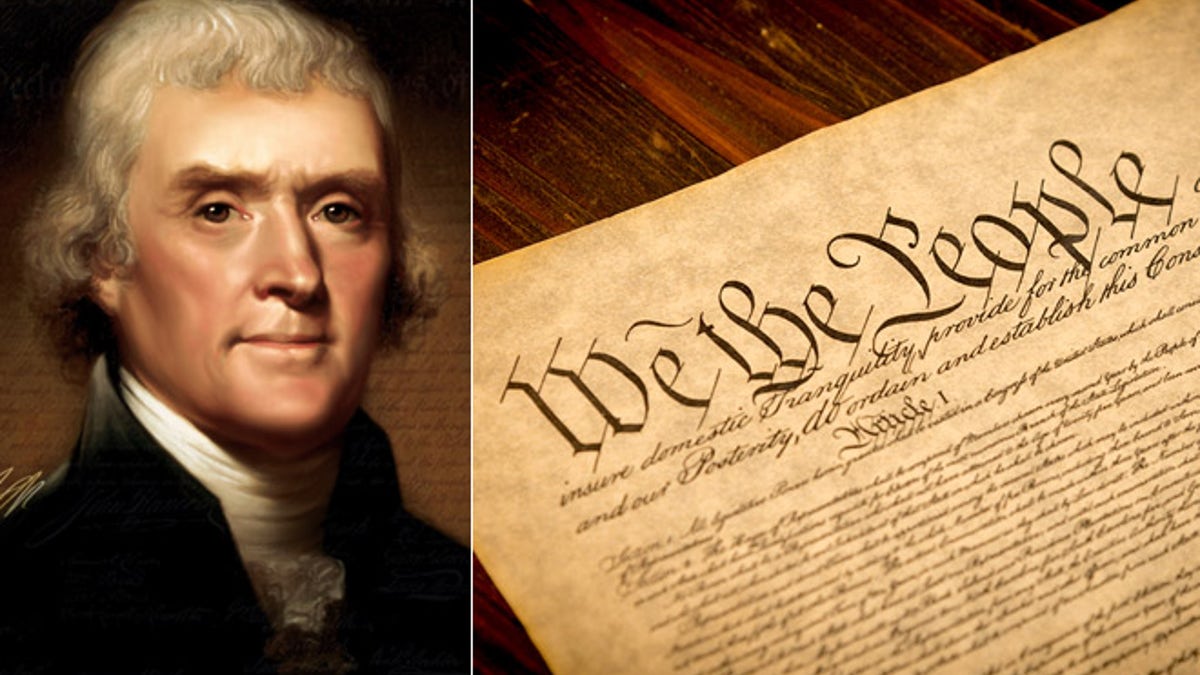
Haley (seated) signed the bill as Huggins, (l.), and former state Sen. Don Vaughan, (r.), looked on.
When public school opens in South Carolina next fall, students could begin getting an earful on the Constitution and Bill of Rights under a new state law, but some critics wonder why it took an act of the legislature to ensure kids learn about America’s founding documents.
Republican Gov. Nikki Haley last month signed the South Carolina Founding Principles Act, which requires that schools teach students about the two key documents as well as the Federalist Papers and the system of checks and balances laid out by the founding fathers.
"When our students are informed, they are empowered - and there is nothing more powerful than the wisdom of our nation's founding documents,” Haley spokeswoman Chaney Adams told FoxNews.com in an email. “They should always be part of what our children learn in school."
Even as supporters applaud the measure, many lament that it was deemed necessary. Education activists have long complained that key components of U.S. history, including the nation’s founding documents and principles, are given short shrift while others receive an outsize focus.
“We have seen for a while now that there is a real hostility toward the ideas of free market principles, toward American exceptionalism, toward our founding fathers and founding documents,” said Kyle Olson, founder of the Michigan-based nonprofit Education Action Group and a leader in education reform. “We have fallen so far [from core American principles] that this sort of law is unfortunately necessary.”
The law requires the State Department of Education to submit a report to lawmakers every two years that details the incorporation of the curriculum, which is required to be fully implemented by 2020.

Students in South Carolina will learn about Thomas Jefferson and the founding documents under a new law.
The documents and ideas underpinning the nation’s founding were not completely ignored prior to the law, acknowledged the bill’s main sponsor, Rep. Chip Huggins, R-Lexington. He believed the instruction needed to be enhanced and standardized to ensure all public school students in the state understood America’s most basic ideals.
“We’ve had a lot of concern about the erosion [of] our founding principles…the Constitution, Bill of Rights, federation papers and separation of powers,” Huggins told FoxNews.com. “No one stands up for them. [This bill] stands up for those rights.”
In addition to the new law, South Carolina also joined seven other states in implementing a national campaign called the Civics Education Initiative, sponsored by the Joe Foss Institute. Those beginning the ninth grade in the upcoming school year will have to take a 100-question, online civics test administered by U.S. Citizenship and Immigration Services by the time they are seniors.
Tanya Robinson, president of the South Carolina Parent Teacher Association, said that while she believes it’s important for students to learn about the government, she is skeptical whether high schoolers will take the test seriously, considering it “does not appear to count for anything.”
Still the dual effort to put a renewed emphasis on civics and the Costitution is overdue, said Olson.
“There’s a major problem when it comes to civics education in American public schools that people need to get serious about,” Olson said.

